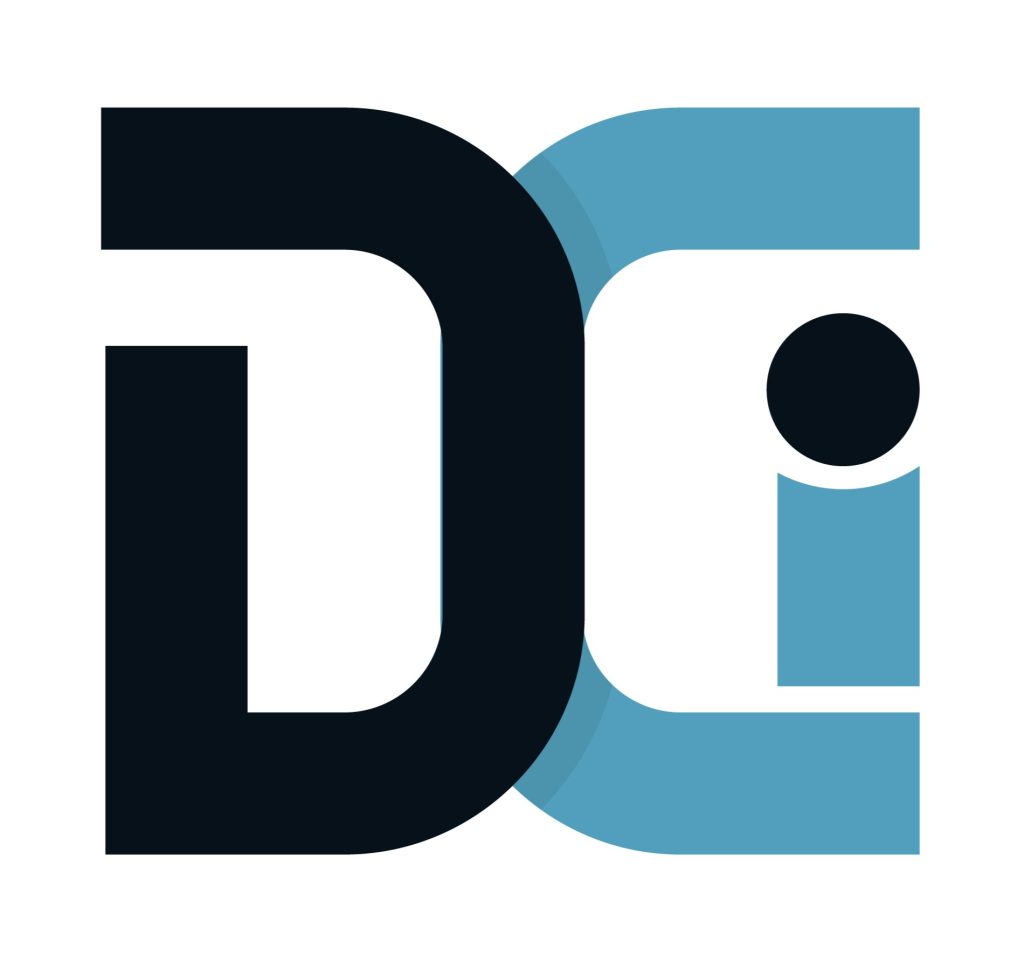Unpaid medical bills have become a significant challenge for healthcare providers, impacting their financial stability and ability to provide quality care. In this article, we explore the importance of unpaid bill solutions in healthcare accounting and discuss effective strategies for resolving unpaid bills. We also highlight best practices for healthcare accounting professionals in managing unpaid bills and examine the future of unpaid bill solutions in healthcare accounting.
Key Takeaways
- Unpaid medical bills have a significant impact on healthcare providers, affecting their financial stability and ability to provide quality care.
- Healthcare providers face several challenges in managing unpaid bills, including complex billing processes and negotiating payment plans with patients and insurance companies.
- Healthcare accounting experts play a crucial role in resolving unpaid bills, providing expertise in billing and collection processes, advanced technology implementation, and collaboration with debt collection agencies.
- Effective strategies for resolving unpaid bills include implementing robust billing and collection processes, utilizing advanced technology for billing and payment management, negotiating payment plans, and collaborating with debt collection agencies.
- Best practices for healthcare accounting professionals in unpaid bill management include maintaining accurate financial records, analyzing trends in unpaid bill data, developing strategies to minimize occurrences, and providing training to healthcare staff on billing and collection processes.
The Importance of Unpaid Bill Solutions in Healthcare Accounting

Understanding the Impact of Unpaid Bills on Healthcare Providers
According to the Consumer Financial Protection Bureau, almost 1 in 5 households in the United States have overdue medical debt. Handling unpaid medical bills can be more complex than other forms of debt. However, there are opportunities to negotiate repayment terms and potentially reduce the amount owed. It’s important to review your medical bill and compare it with your explanation of benefits if you have insurance. Additionally, the No Surprises Act on medical billing may provide additional repayment options. Taking these steps can help you navigate the process of resolving unpaid medical bills.
Challenges Faced by Healthcare Providers in Managing Unpaid Bills
Managing unpaid bills in healthcare can be challenging for providers. The complexity of medical billing and insurance processes can lead to confusion and delays in payment. Additionally, the high volume of unpaid bills can strain the financial resources of healthcare organizations. It is crucial for providers to navigate these challenges effectively to ensure financial stability and patient satisfaction.
The Role of Healthcare Accounting Experts in Resolving Unpaid Bills
Outsourcing medical billing can be key to ensuring your team isn’t overworked. Small practices’ front-office teams are often jacks of many trades for whom the revenue cycle is tedious, lengthy and complex. Outsourcing the process (partially or entirely) alleviates this challenge.
Higher accuracy: Claim errors from carelessness are a huge revenue drain. When you outsource your billing to experts, especially those with rules-based engines, you mitigate this risk. These experts and their technology are a powerful combination for identifying potential claim errors and solving them before they become huge issues.
More collections: Outsourced medical billing teams focus entirely on billing. The result is more collections more quickly. Even the best in-house teams, given their many responsibilities, can rarely achieve the revenue peaks possible with outsourcing.
In-depth data and analytics: Many medical billing services will analyze your accounts receivable and use the trends they observe to suggest modifications to your processes. You should also consider the benefits of outsourcing your billing to a company that offers in-depth data and analytics.
Characteristics to look for in medical billing services: Secure and HIPAA compliant, certified medical coders and billers, years of experience in the industry, access to EMR systems and practice management systems.
Negotiating payment plans: Medical billing services can assist in negotiating payment plans with patients and insurance companies to ensure timely payment and reduce the burden on healthcare providers.
Referring unpaid accounts to collections: In extreme cases, a medical billing service may refer unpaid accounts to a collections agency to recover the outstanding balance.
Detailed financial reporting: Many medical billing services provide detailed financial reporting, capturing all the data related to your claims and presenting it in easy-to-filter reports. This level of reporting can be extremely helpful in managing your practice’s finances.
HIPAA compliance: Medical billing services must comply with HIPAA regulations to ensure the security and privacy of patient information.
Handling unpaid bills: Unpaid medical bills can have a significant impact on individuals and households. It’s important to review your medical bill, compare it with your explanation of benefits, and explore repayment options. The No Surprises Act on medical billing may provide additional repayment options.
Following up with patients: Medical billing services will typically send patients a statement explaining their bill and follow up with them if the bill goes unpaid. This proactive approach can help resolve unpaid bills in a timely manner.
Financial stability and cash flow: Unpaid invoices can have a significant impact on healthcare providers’ financial stability and cash flow. Resolving unpaid bills through the expertise of healthcare accounting experts can help maintain a healthy financial position.
Impact on small businesses: Unpaid bills can also affect small healthcare practices, causing operational inefficiencies and cash flow challenges. Outsourcing medical billing and utilizing the expertise of healthcare accounting experts can alleviate these challenges and ensure smooth revenue cycles.
Key Considerations for Choosing Unpaid Bill Solutions
When comparing potential medical billing services, there are several key considerations to keep in mind. First, determine whether the patient portal is included with your billing services or if it will cost extra. Additionally, find out how the billing service pursues unpaid bills and how long it waits to send them to collections. It’s important to have a clear understanding of the company’s features, such as claim scrubbing, follow-up, reporting, consultation, and EMR and PMS access. Lastly, consider whether the billing service will leave the company or your own team in charge of certain tasks.
Effective Strategies for Resolving Unpaid Bills in Healthcare

Implementing Robust Billing and Collection Processes
Implementing robust billing and collection processes is crucial for healthcare organizations to maximize revenue and reduce financial risks. By streamlining the billing cycle and optimizing payment collection, healthcare providers can improve cash flow and minimize unpaid bills. Here are some key strategies to consider:
- Automate billing and payment processes to increase efficiency and accuracy.
- Implement clear and transparent billing policies to ensure patients understand their financial responsibilities.
- Offer convenient payment options such as online portals and mobile apps to enhance the patient experience.
- Regularly monitor and analyze billing data to identify trends and areas for improvement.
By implementing these strategies, healthcare organizations can enhance their financial performance and provide a seamless billing experience for patients.
Utilizing Advanced Technology for Billing and Payment Management
Modern medical billing software and services offer personalized patient experiences through features like payment plans and statement customization. AdvancedMD’s dashboard simplifies billing tasks with features such as electronic remittance advice documentation and direct document inclusion with claims. The use of advanced technology, including ChatGPT, helps streamline denial management and eligibility verification. Data security is a top priority, with healthcare organizations fortifying digital security to protect patient information. Expect more RCM providers to prioritize transparency and excellent customer service.
Negotiating Payment Plans with Patients and Insurance Companies
To effectively negotiate a payment plan for your medical bills, it is important to be honest and upfront with your healthcare provider or hospital billing department. Explain your situation and express your willingness to set up a payment plan. This conversation is not about getting out of paying, but rather finding a solution that works for both parties. Keep in mind that if you fail to keep up with the payments on your negotiated plan, it can damage your relationship with the healthcare provider and may limit future opportunities for payment plans. Therefore, it is crucial to ensure that the payment terms and timeframe are realistic based on your financial situation.
Here are some strategies to consider:
-
Explore Cheaper Health Care Options: Consider if there are alternative, less expensive treatment options available for your healthcare needs.
-
Negotiate a Payment Plan: While your healthcare provider cannot waive or discount your deductible, they may be willing to allow you to pay it over time. Discuss this option with them and emphasize your commitment to fulfilling your financial obligations.
Remember, open communication and a willingness to find a mutually beneficial solution are key to successful negotiation.
Collaborating with Debt Collection Agencies for Unpaid Bill Recovery
When it comes to recovering unpaid bills in healthcare accounting, collaborating with debt collection agencies can be a valuable strategy. These agencies specialize in debt recovery and have the expertise to navigate the complexities of the collection process. Here are some key benefits of collaborating with debt collection agencies:
- Expertise in debt recovery: Debt collection agencies have the knowledge and experience to effectively pursue unpaid bills and maximize recovery.
- Legal compliance: They are well-versed in the laws and regulations governing debt collection, ensuring that the process is conducted ethically and within legal boundaries.
- Efficient and systematic approach: Debt collection agencies have established systems and processes in place to streamline the collection process, making it more efficient and increasing the chances of successful recovery.
- Reduced administrative burden: By outsourcing the collection process to a debt collection agency, healthcare providers can free up their resources and focus on core operations.
Tip: When collaborating with debt collection agencies, it is important to choose a reputable agency that aligns with your organization’s values and goals. Conduct thorough research and due diligence to ensure a successful partnership.
Best Practices for Healthcare Accounting Professionals in Unpaid Bill Management

Maintaining Accurate and Up-to-Date Financial Records
Maintaining accurate and up-to-date financial records is crucial for healthcare accounting professionals. It ensures transparency and compliance with regulatory requirements. By keeping detailed records of financial transactions, accountants can easily track revenue and expenses, identify trends, and make informed financial decisions. Additionally, accurate financial records enable healthcare providers to monitor cash flow and manage budgets effectively. To achieve this, healthcare accounting professionals utilize advanced software and automated processes to streamline record-keeping and minimize errors. By maintaining accurate financial records, accountants can provide timely and accurate financial information to stakeholders, including management, investors, and regulators.
Analyzing Trends and Patterns in Unpaid Bill Data
Analyzing trends and patterns in unpaid bill data provides valuable insights for healthcare accounting professionals. By examining the data, you can identify emerging trends and patterns that can help inform decision-making and improve financial management. This analysis allows you to identify areas of improvement and implement strategies to minimize unpaid bill occurrences. Additionally, it enables you to forecast future trends and take proactive measures to prevent unpaid bills. By leveraging data analytics and advanced technology, you can gain a deeper understanding of the factors contributing to unpaid bills and develop targeted solutions to address them. This data-driven approach empowers healthcare accounting professionals to make informed decisions and optimize revenue cycle management.
Developing Strategies to Minimize Unpaid Bill Occurrences
To minimize the occurrence of unpaid bills in healthcare accounting, consider the following strategies:
-
Implement clear and transparent billing policies to ensure patients understand their financial responsibilities.
-
Offer convenient payment options such as online portals and payment plans to make it easier for patients to settle their bills.
-
Regularly review and update fee schedules to ensure they align with industry standards and accurately reflect the services provided.
-
Provide financial counseling and education to patients to help them understand their insurance coverage and navigate the billing process.
-
Establish effective communication channels to address billing inquiries and resolve payment disputes promptly.
-
Monitor and analyze billing data to identify trends and patterns that may indicate potential issues with unpaid bills.
-
Collaborate with healthcare providers and insurance companies to streamline billing processes and improve reimbursement rates.
-
Stay informed about healthcare reforms and adapt billing practices accordingly to comply with changing regulations.
-
Invest in advanced billing technology to automate processes, reduce errors, and improve efficiency.
By implementing these strategies, healthcare accounting professionals can proactively minimize unpaid bill occurrences and ensure a smoother financial management process.
Providing Training and Education to Healthcare Staff on Billing and Collection
When it comes to training and educating your healthcare staff on billing and collection, there are a few key points to keep in mind:
- Stay up-to-date: Ensure that your staff is well-informed about the latest billing and collection practices and regulations.
- Emphasize accuracy: Stress the importance of accurate documentation and coding to avoid billing errors.
- Promote communication: Encourage open lines of communication between billing staff and healthcare providers to address any questions or concerns.
- Offer ongoing training: Provide regular training sessions to keep staff updated on changes in billing procedures and industry trends.
- Monitor performance: Regularly review and assess staff performance to identify areas for improvement and provide additional training as needed.
Remember, a well-trained and educated healthcare staff is essential for efficient and effective billing and collection processes.
The Future of Unpaid Bill Solutions in Healthcare Accounting

Emerging Technologies and Innovations in Unpaid Bill Management
In 2024, emerging technologies and innovations are revolutionizing unpaid bill management in healthcare accounting. Automation technology, such as Outbound AI’s generative AI, is streamlining billing processes and minimizing manual labor. Machine learning algorithms are being integrated into healthcare IT products, leading to more accurate billing. Data security is also a top priority, with medical billing software expected to enhance digital security measures. Additionally, personalization tools and payment plans are being implemented to improve the patient experience. Transparency in billing practices is gaining importance, driven by state legislation and consumer concerns. The use of automation technology and AI is expected to continue shaping the future of unpaid bill solutions in healthcare accounting.
The Impact of Healthcare Reforms on Unpaid Bill Resolution
In 2024, healthcare providers can expect compliance changes based on the federal No Surprises Act that went into law in 2022. This law protects patients from incurring unexpected medical bills, but many physicians have argued that federal involvement in insurer-practice disputes violates the Act’s guidelines. Between February 2022 and February 2023, two federal district court rulings invalidated certain parts of the Act. As a result, there is confusion surrounding the implementation and enforcement of the Act.
To navigate these changes, healthcare accounting professionals should stay updated on the latest developments and ensure compliance with the revised regulations. It is crucial to maintain accurate and up-to-date financial records to track and manage unpaid bills effectively. Additionally, healthcare providers should analyze trends and patterns in unpaid bill data to identify areas for improvement and develop strategies to minimize unpaid bill occurrences.
Furthermore, healthcare accounting professionals should collaborate with insurance companies and other stakeholders to address unpaid bills. Collaboration between healthcare providers and insurance companies can help streamline the billing and payment process, reduce disputes, and improve the overall resolution of unpaid bills. Predictive analytics can also be utilized to proactively identify potential unpaid bill issues and take preventive measures.
In summary, the impact of healthcare reforms on unpaid bill resolution in 2024 requires healthcare accounting professionals to adapt to compliance changes, maintain accurate records, analyze data, collaborate with stakeholders, and utilize predictive analytics for proactive prevention.
Collaboration between Healthcare Providers and Insurance Companies
In the complex landscape of healthcare accounting, collaboration between healthcare providers and insurance companies is essential for effective unpaid bill resolution. By working together, healthcare providers and insurance companies can streamline billing processes, improve payment accuracy, and ensure timely reimbursement. This collaboration allows for better communication and coordination, reducing the burden on both parties. Accounting jobs near me can benefit from this collaboration by gaining insights into insurance company policies and procedures, optimizing billing practices, and maximizing revenue. It is important for healthcare accounting professionals to establish strong relationships with insurance companies to navigate the intricacies of unpaid bill management.
Predictive Analytics for Proactive Unpaid Bill Prevention
In the ever-evolving landscape of healthcare accounting, predictive analytics is emerging as a powerful tool for proactively preventing unpaid bills. By analyzing vast amounts of data, predictive analytics can identify patterns and trends that indicate potential non-payment, allowing healthcare providers to take proactive measures. With the help of advanced algorithms and machine learning, predictive analytics can accurately forecast the likelihood of unpaid bills and enable healthcare accounting experts to intervene before they become a problem. This proactive approach not only improves financial stability but also enhances patient satisfaction and trust in the healthcare system.
Conclusion
In conclusion, the issue of unpaid medical bills is a significant challenge in the healthcare industry. As highlighted by recent news articles, hospitals and healthcare providers are grappling with the financial burden caused by unpaid bills. However, there are solutions available to address this problem. Medical billing services play a crucial role in helping healthcare organizations navigate the complex world of billing and collections. These services offer detailed financial reporting, follow-up on unpaid claims, and ensure HIPAA compliance. By partnering with reputable medical billing services, healthcare accounting experts can find effective solutions to manage and reduce unpaid medical bills. It is essential for hospitals and payers to trust each other and work together to find sustainable solutions that benefit both parties and ultimately improve the healthcare system as a whole.
Frequently Asked Questions
What is the impact of unpaid bills on healthcare providers?
Unpaid bills can have a significant impact on healthcare providers, leading to financial strain, reduced resources, and compromised patient care.
What are the challenges faced by healthcare providers in managing unpaid bills?
Healthcare providers face challenges such as complex billing processes, insurance claim denials, and difficulty in collecting payments from patients.
How do healthcare accounting experts help in resolving unpaid bills?
Healthcare accounting experts provide expertise in managing billing and collection processes, analyzing financial data, and negotiating payment plans with patients and insurance companies.
What should healthcare providers consider when choosing unpaid bill solutions?
Healthcare providers should consider factors such as the effectiveness of billing and collection processes, advanced technology capabilities, collaboration with debt collection agencies, and compliance with healthcare regulations.
What are effective strategies for resolving unpaid bills in healthcare?
Effective strategies include implementing robust billing and collection processes, utilizing advanced technology for billing and payment management, negotiating payment plans, and collaborating with debt collection agencies.
What are best practices for healthcare accounting professionals in unpaid bill management?
Best practices include maintaining accurate financial records, analyzing trends in unpaid bill data, developing strategies to minimize unpaid bill occurrences, and providing training and education to healthcare staff.








